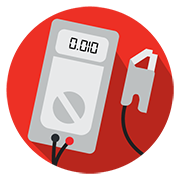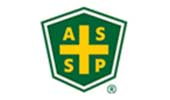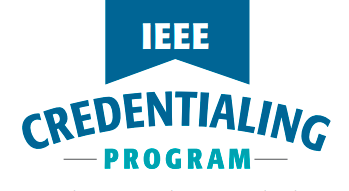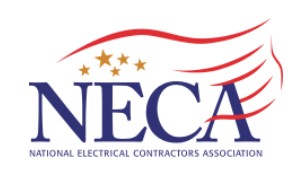
Low Voltage Qualified
Based on the NFPA 70E Standard
Class Overview
Our 8-hour low voltage qualified course focuses on electrical safety training for employees who work on 600V and below. This NFPA 70E based course goes beyond the theoretical to give attendees a complete understanding of the rules and regulations relating to electrical and arc flash safety and how to apply them in real-world situations.
Based on the 2024 NFPA 70E, this course helps you and your employees stay compliant with OSHA regulations, and provides updates from the 2021 NFPA 70E to the 2024 version.
Also offered as a Train the Trainer class.
What You'll Learn
Attendees of our Low Voltage training class will learn the following information:
- Practical compliance with NFPA 70E electrical safety in the workplace
- How to do table-based hazard assessments using NFPA 70E
- How to choose Personal Protective Equipment (PPE) based on the NFPA 70E tables
- Differences between the NEC, NESC, NFPA 70E and OSHA standards
- PPE do’s and don’ts for workers exposed to shock and electric arc hazards
- Standards to use in clothing and PPE selection
- Explanations of arc ratings ATPV and EBT, and how they are applied
- The ins and outs of flame resistant (FR), arc-rated (AR) clothing and other shock and arc PPE
Who Should Attend?
- Safety directors
- Electrical contractors
- Maintenance electricians
- Linemen
- Owners and managers
Frequently Asked Questions
The answer to this question isn’t as straightforward as it seems. OSHA speaks of an electrical employee being “Qualified” in OSHA 1910.332(a) and 1910.332(b)(3). If you have employees who perform electrical work of any type, these employees need to be qualified, and the qualifying agent is ALWAYS the employer. No one else can qualify per OSHA – and from a liability perspective, you as the employer are always liable for your employee training.
The Bottom Line:
Arrange to have your employees trained (NFPA 70E courses). Once trained, the record of that training gets filed in the employee’s training records, proving that the employee did, in fact, receive training.
After training, the employer (or a contracted training company/e-Hazard) must watch the electrical employee perform those tasks in which you as the employer expect him to be proficient. This “hands-on demonstration of skills” gets documented in personnel records.
Once an employer is satisfied that the employee meets their expectations, they will write a statement that designates an employee as a “Qualified Electrical Technician” or some wording to that effect. Once that paperwork is filed, the employee is now considered “qualified” and free to perform the task(s) that you as the employer qualified him to perform.
110.6 (A)(3) Additional Training and Retraining. Additional
training and retraining in safety-related work practices and applicable changes
in this standard shall be performed at intervals not to exceed 3 years. (NFPA
70E, 2021)
OSHA does not certify employees. Read our blog post on what certified means in electrical safety.
They do not. Only an employer can deem you qualified. One of our e-Hazard instructors wrote an article answering this question. Find out what these terms mean.
Additional Information
Training Fee for On-Site Classes includes:
- Expert instruction
- Daily training fee
- Training supply fee based upon numbers of employees:
- NFPA 70E-2021 Standard ($106.00 per-person)
- e-Hazard student manual ($45.00 per-person)
- Certificate of Completion – 8 hour*
Registration Fee for Open-Registration Classes includes:
- Expert instruction
- Flat fee per person
- Training supplies:
- NFPA 70E-2021 Standard ($106.00 value)
- e-Hazard student manual ($45.00 value)
- Certificate of Completion – 8 hour*
- Demonstrations and samples of PPE from the industry’s leading manufacturers (when available)
- Lunch
* LV courses are approved for credit for electricians in AK, AL, DE, FL, ID, Evansville IN, Johnson Co. KS, KY, LA, MD, MT, NC, NJ, NM, Las Vegas NV, OH, OR, SD, UT, WA, WI and WY (WY open classes only), and are accepted by most states for PDH’s for electrical engineers. Contact e-Hazard for more details
| Times | Events |
|---|---|
| 7:30 AM | Continental Breakfast* |
| 8:00 AM | Introduction to Electrical Safety & NFPA 70E |
| 10:00 AM | Break |
| 10:15 AM | Electrical Hazards: Shock, Arc Blast, Arc Flash |
| 12:00 PM | Working Lunch* (box lunch provided) |
| 12:30 PM | PPE Selection & Use |
| 2:45 PM | Break |
| 3:00 PM | Table Task Hazard Analysis |
| 4:00 PM | Safe Work Practices (OSHA requirements & best practices) |
| 5:00 PM | Wrap Up |
*Breakfast and lunch are provided for open classes only.
e-Hazard offers the following Continuing Education Credits for the Low Voltage Qualified electrical safety training class.
- BICSI*
- NETA
- State Electrical Boards: AK, AL, CO, DE, FL, ID, KY (2 safety hours), LA, MA, MD, MT, NC, ND, NJ, NM, OH, OR, SD, UT, WA, WI and WY (WY open classes only)
- Evansville, IN; Johnson and Sedgwick Co, KS; Las Vegas, NV
*Effective 2/1/2018, BICSI recognizes Electrical Workplace Safety NFPA 70E Low Voltage Qualified training for the following BICSI Continuing Education Credits (CECs): 7 BICSI CECs
Visit our Electrical Training Continuing Education page for more details.
Live Web-Based Training
e-Hazard offers this class in a live web-based format.
See DetailsOn-site at Your Facility
Pricing includes training plus student materials. Rates in Washington (state) may differ.
Local rates and volume rates available. Includes 8 hours of training and instructor travel to U.S. locations. Limited to 40 students.
Request a QuoteAttend a Nationwide Class
Additional cost Per Person
Class ScheduleAdditional Resources
- Meet Our Instructors
- Why Use e-Hazard?
- Get the Boss On Board
- Which Class Is Right for Me?
- Subscribe to Our Newsletter
Courses On Video
For rent or purchase. Now you can benefit from our expertise with our electrical safety training packages on video.
Course DetailsLooking for a Class in Your Area?
Find expert electrical safety training near you.






